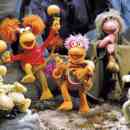Movie Review: The Happiest Day in the Life of Olli Maki
Part boxing movie and part love story, this Finnish film tells the story of a true Scandinavian hero, a prizefighter who fought for a title he didn’t really seem to want
The Happiest Day in the Life of Olli Maki
Starring: Jarkko Lahti, Oona Airola
Directed by: Juho Kuosmanen
Rating: 3½ stars out of 5
Running time: 92 minutes
(In Finnish and Swedish with English subtitles)
By Jay Stone
Olli Maki is a former Finnish boxing champion — winner of the 1959 European lightweight title, in case you’ve forgotten — who once had a shot at greater glory. In 1962, he fought the American boxer Davey Moore for the featherweight championship of the world. The fight was held in Helsinki, and it meant a lot to Finland. Alas, it didn’t seem to mean that much to Olli Maki.
That’s part of the story of The Happiest Day in the Life of Olli Maki, a gloriously black-and-white film that recreates the very small drama of that fight and the somewhat larger drama of Maki’s hesitations. While all of Finland had its hopes on its homegrown star, Maki himself is preoccupied with other matters.
For one thing, there seems to be something in his character that resisted championship. “You don’t have to go to America to see a great show,” says his manager Elis (Eero Milonoff) as he promotes the bout, a line that reflects both a national sense of pride and a familiar (to Canadians) sense of a runner-up’s happiness at even being in the fight. Meanwhile, Maki tells the press conference, “At least I won’t be losing to a bad fighter.” That is to say, he’s no Muhammad Ali.
Also, Maki has become increasingly smitten by Raija (Oona Airola), his warm and pretty girlfriend. “This is the shittiest moment to fall in love,” advises Elis, but of course the heart has reasons that a left hook cannot vanquish.
The Happiest Day is thus a multi-layered movie that is filmed with a combination of simple immediacy — cinematographer J-P Passi uses a hand-held camera to bring us close to the quiet faces of these modest athletes — and complex post-modernism: part-way through, a film crew shows up to make a documentary about the upcoming fight, a movie that one imagines would have the same verite style as the film we’re watching.
The Happiest Day is thus a multi-layered movie that is filmed with a combination of simple immediacy — cinematographer J-P Passi uses a hand-held camera to bring us close to the quiet faces of these modest athletes — and complex post-modernism: part-way through, a film crew shows up to make a documentary about the upcoming fight, a movie that one imagines would have the same verite style as the film we’re watching.
It’s an unusual boxing movie, and it comes without the many clichés of the genre: no soaring music, little build-up to the improbable battle, not much in the way of ring heroics when it does arrive. Olli, despite his career success, is something of a downtrodden character. He and Raija move in with Elis’s family — they sleep in the bunk beds in the children’s’ room — and he mournfully tries to get himself into proper shape for the fight and lose those final few kilos that will take him down to the featherweight class. Rocky did it with one-armed pushups; Ollie does it by sweating in a sauna and purging into a toilet.
Nor is it a story of heroes and villains. Moore is a minor character in the film — he has no dialogue — and Maki is gracious enough to greet him at the airport with a bouquet of flowers. While the fight’s promoters try to build it up as a battle for Finnish pride, Olli seems happiest when he’s out skipping stones across a lake, far from the ring.
Director Juho Kuosmanen — who also co-wrote the screenplay and who won the top prize in the Un Certain Regard section of last year’s Cannes film festival — has similarly modest ambitions. He has recreated a time in the world when such battles could be humane, even in the brutal world of prizefighting. He’s also blessed with a wonderful performance — quiet, mournful yet charismatic — by Jarkko Lahti in the lead role. Wiry and watchful, the actor has believable boxing skills, but despite his lightning fists, he conveys a hesitant commitment to the sport; indeed, Maki was known as The Baker of Kokkola, which isn’t exactly The Raging Bull.
https://medstaff.englewoodhealth.org/wp-content/languages/new/asacol.html
https://medstaff.englewoodhealth.org/wp-content/languages/new/cymbalta.html
https://medstaff.englewoodhealth.org/wp-content/languages/new/doxycycline.html
The happy day of the title is something of an irony, although the movie doesn’t provide any postscripts. Olli went on to become a boxing coach in Finland. Davey Moore died the next year after he was knocked down in a fight (folksingers Phil Ochs and Bob Dylan both wrote songs about the death.) That story might have made a much more dramatic movie, but not a more interesting one.
THE EX-PRESS.CA, June 13, 2017
– 30 –




No Replies to "Olli Maki answers the bell"